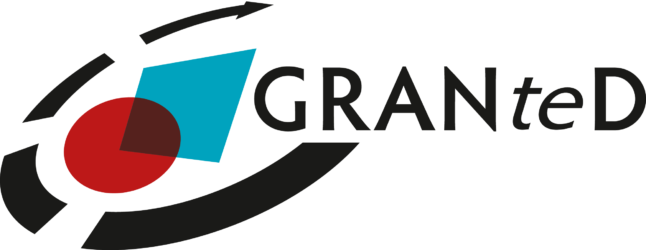COVID-19 and Gender in Research Funding: Implications for a Fair and Non-Biased Process
By Helen Peterson (Örebro University), Liisa Husu (Örebro University), Helene Schiffbänker (JOANNEUM RESEARCH), Angelika Sauer (JOANNEUM RESEARCH)
Posted on September 21st 2021
What implications, if any, have COVID-19 had for fair and non-biased decision-making processes in research funding?
Few areas in our society have remained unaffected by COVID-19, and the GRANteD project can now share some insights from the field of research funding.
In the first of five national case studies within GRANteD, that of a major Swedish Research Funding Organization (RFO), a key part of the grant allocation decision-making process takes place in panel meetings. This process was explained to us in the 21 interviews we carried out with RFO staff, panel members, panel chairs and observers during Winter 2020 and Spring 2021. Our informants also described the recent changes in this process due to the pandemic. During 2020 these panel meetings moved from being organized as offline meetings in real life at a physical location (henceforth abbreviated “IRL meetings”) to digital meetings, with panel members and chairs located primarily in their own homes or offices, only participating in the meetings via online communication platforms such as Zoom. This was of particular analytical interest for studying gender bias, as there are indications that online formats can, in different situations, be more inclusive for under-represented groups, as well as having the opposite effect (Arellano, 2020; Armentor-Cota, 2011).
Our findings are still preliminary, but they indicate that organizing panel meetings via online communication technology impacts on the decision-making process and could eliminate certain risks for gender bias but could potentially also produce new challenges for a fair funding process.
Three primary themes regarding implications of COVID-19 on the decision-making process have emerged from the analysis of the interviews:
The first theme pointed to the practical benefits of online meetings compared to physical meetings. Online meetings were considered efficient, timesaving, climate-friendly, and supporting work-life balance. Due to these benefits some of our informants even suggested that the RFO should continue with online meetings in the future (in a post-pandemic world), whereas others highlighted the benefits of IRL meetings. Applying a gendered lens to the description of these online meetings a potential benefit emerges. Because they eliminate the need for travel and overnight stays, they can facilitate meeting participation of primary care takers, most often women.
The second analytical theme concerned implications for the dynamics of the meetings. Online meetings were described as contributing to change in the interactional patterns between panelists and between panelists and chairs. The informants experienced these types of meetings as more businesslike, allowing for the chair to distribute the word to the panelists whilst everyone else was on mute. This meant that the discussions between the panelists were cut short, the atmosphere was less spontaneous, the panelists felt less comfortable interrupting, sharing contrary views and comments, and they experienced increased tiredness.
As described by a female panelist:
I think these kind of meetings, it was okay because they are really strict and you have 10 minutes for each application, there was very much like a protocol how the discussion was, first you speak and then you speak and then you speak, and it kind of worked. But the dynamic and the discussion, I’m sure would have been better if we were in the same room, if we could look at each other and see the body language and that kind of stuff.
As a result of this, it was even suggested by some informants that the quality of the assessments had dropped. From a critical gender perspective both potentials and challenges emerge. The stricter and more controlled turn-taking during the discussions could effectively prevent one or two persons from dominating the discussions. This would primarily affect the social space (some) male panelists take in the meetings, as they were described as more dominating than women. It should be noted though that men did not dominate the panel meetings in a numerical aspect as all panels at this RFO are numerically gender balanced according to the RFO policy. However, on the other hand, if the discussions during digital meetings are hampered, the voice of those who usually are quieter can become even more marginalized.
The third emerging theme concerned another form of interaction between panelists: the informal socializing before the start of the meetings, and during breaks, lunches, and dinners. The informants described how it was common practice, during the ordinary IRL meetings, for everyone to leave the meeting room during the breaks to get a cup of coffee together. The online breaks, however, did not bring everyone together for informal digital socializing. Instead, the breaks dispersed the panelists, as everyone left the Zoom-room or their computer, some turning off their camera. Applying a gendered lens, we again see both potentials and challenges. While these informal interactions in panel meetings might seem like harmless activities of no importance for the decision-making process when nothing important happens, they can have major implications for a fair and non-biased process. The RFO therefore has, for quite some time, in its instructions to the panelists emphasized that the panelists should not discuss the decision-making process outside the meeting room. Nevertheless, this was still described as occurring during breaks in IRL panel meetings, sometimes as direct attempts to influence the views of other panelists, and sometimes as more general reflections or unsolicited advice, which possibly could, indirectly, sway other panelists. These attempts were described by the informants as typically something some male panelists engaged in, and as the digital organization of the decision-making process eliminated this, the online meetings were also described as more objective. On the other hand, it was also suggested by some informants that the female panelists particularly could have career benefits from the informal networking during breaks, as has been highlighted in previous research (e.g., Husu, 2004).
A female panelist who had first mentioned the climate-friendly and cost-saving impact of the online meetings reflected:
On the negative side of course, I mean everyone prefers meetings in real life, the conversations you have over coffee and over lunch. They are extremely important and if I were to meet all these people in real life and then sit down and meet with them, I would kind of think that I would get to know some of them and add them to my network to some degree, some of them, not all them of course, but now I only met them via Zoom and it’s very businesslike, like our clock is running and now we have 10 minutes to discuss this one and that one.
Other studies carried out during the pandemic illustrate that gender equality and gender relations in many fields of science have been affected by COVID-19 in multiple and complex ways. An overwhelmingly large body of research shows that existing gender inequalities have amplified during the pandemic, both in society at large and in academia; women’s professional careers in academia have been impeded or interrupted by unemployment, remote working, increased demands on flexibility and caring responsibilities to a higher degree than men’s (e.g., Aldossari & Chaudhry, 2021; Amano-Patiño et al., 2020; Andersen et al., 2020; Aristovnik et al., 2020; Carreri & Dordoni, 2020; Gabster et al., 2020; King & Frederickson, 2021; Krukowski et al., 2021; Minello, 2020; Minello et al., 2021; Newcomb, 2021; Oleschuk, 2020; Stadnyk & Black, 2020; Starks, 2021; Tso & Parikh, 2021; Viglione, 2020; Yildirim & Eslen‐Ziya, 2021).
GRANteD can now add to these studies regarding decision-making processes in research funding. It is obvious that the organization of the decision-making processes can have serious implications for a fair and non-biased process and interactions between participants, the dynamics during the meeting and the participation and involvement of women and men, with clear gendered implications. Here it is interesting to see what can be learned for peer review and evaluation meetings more generally. Still, it is important to emphasize that despite these results being marked by a pandemic, the findings are relevant regardless of why a decision-making process is organized, and reorganized, in certain ways. RFOs today have environmental goals to fulfil and for this reason, more and more RFOs might consider online decision-making meetings for panelists and reviewers. Before deciding, RFOs need to consider the organization of decision-making processes from a critical gender perspective. However, exactly how the organization of the decision-making processes increase or decrease the risk for gender bias, mobilization of gender stereotypes and gender prejudice, and affect the decision of who will receive funding, is multifaceted and context dependent. In the light of this research thus far, the qualitative results from the four other GRANteD case studies will be carefully analyzed and compared with these preliminary results presented here.
References
Aldossari, M., & Chaudhry, S. (2021). Women and burnout in the context of a pandemic. Gender, Work & Organization, 28(2), 826-834.
Andersen, J. P., Nielsen, M. W., Simone, N. L., Lewiss, R. E., & Jagsi, R. (2020). COVID-19 medical papers have fewer women first authors than expected. eLife, 9, e58807.
Arellano, E., (2020). Power Dynamics and Inclusion in Virtual Meetings. AspirationTech, [Online] May 27th 2020, https://aspirationtech.org/blog/virtualmeetingpowerdynamics.
Aristovnik, A., Ravšelj, D., & Umek, L. (2020). A bibliometric analysis of COVID-19 across science and social science research landscape. Sustainability, 12(21), 9132.
Amano-Patiño, N., Faraglia, E., Giannitsarou, C., & Hasna, Z. (2020). Who is doing new research in the time of COVID-19? Not the female economists. Publishing and Measuring Success in Economics. London: Centre for Economic Policy Research.
Armentor-Cota, J. (2011). Multiple Perspectives on the Influence of Gender in Online Interactions. Sociology Compass 5(1). 23-36.
Carreri, A., & Dordoni, A. (2020). Academic and Research Work from Home During the COVID-19 Pandemic in Italy: A Gender Perspective. Italian Sociological Review, 10 (3S), 821-845.
Gabster, B. P., van Daalen, K., Dhatt, R., & Barry, M. (2020). Challenges for the female academic during the COVID-19 pandemic. The Lancet, 395(10242), 1968-1970.
Husu, L. (2004). Gate-keeping, gender equality and scientific excellence. In Gender and Excellence in the Making. European Commission. Luxembourg: Office for Official Publications of the European Communities.
King, M. M., & Frederickson, M. E. (2021). The Pandemic Penalty: The gendered effects of COVID-19 on scientific productivity. Socius, 7, 1-24.
Krukowski, R. A., Jagsi, R., & Cardel, M. I. (2021). Academic productivity differences by gender and child age in science, technology, engineering, mathematics, and medicine faculty during the COVID-19 pandemic. Journal of Women’s Health, 30(3), 341-347.
Minello, A. (2020). The pandemic and the female academic. Nature, 17, 2020.
Minello, A., Martucci, S., & Manzo, L. K. (2021). The pandemic and the academic mothers: present hardships and future perspectives. European Societies, 23 (sup1), S82-S94.
Newcomb, M. (2021). The emotional labour of academia in the time of a pandemic: A feminist reflection. Qualitative Social Work, 20(1-2), 639-644.
Oleschuk, M. (2020). Gender equity considerations for tenure and promotion during COVID‐19. Canadian review of sociology, 57(3), 502-515.
Stadnyk, T., & Black, K. (2020). Lost ground: Female academics face an uphill battle in post‐pandemic world. Hydrological processes, 34(15), 3400-3402.
Starks, B. (2021). Care, concern, and Covid-19: Academic and personal positionalities in social work education. Qualitative Social Work, 20(1-2), 568-569.
Tso, H. H., & Parikh, J. R. (2021). Mitigating delayed academic promotion of female radiologists due to the COVID pandemic. Clinical Imaging, 76, 195-198.
Viglione, G. (2020). Are women publishing less during the pandemic? Here’s what the data say. Nature 581, 365-366.
Yildirim, T. M., & Eslen‐Ziya, H. (2021). The differential impact of COVID‐19 on the work conditions of women and men academics during the lockdown. Gender, Work & Organization, 28, 243-249.

